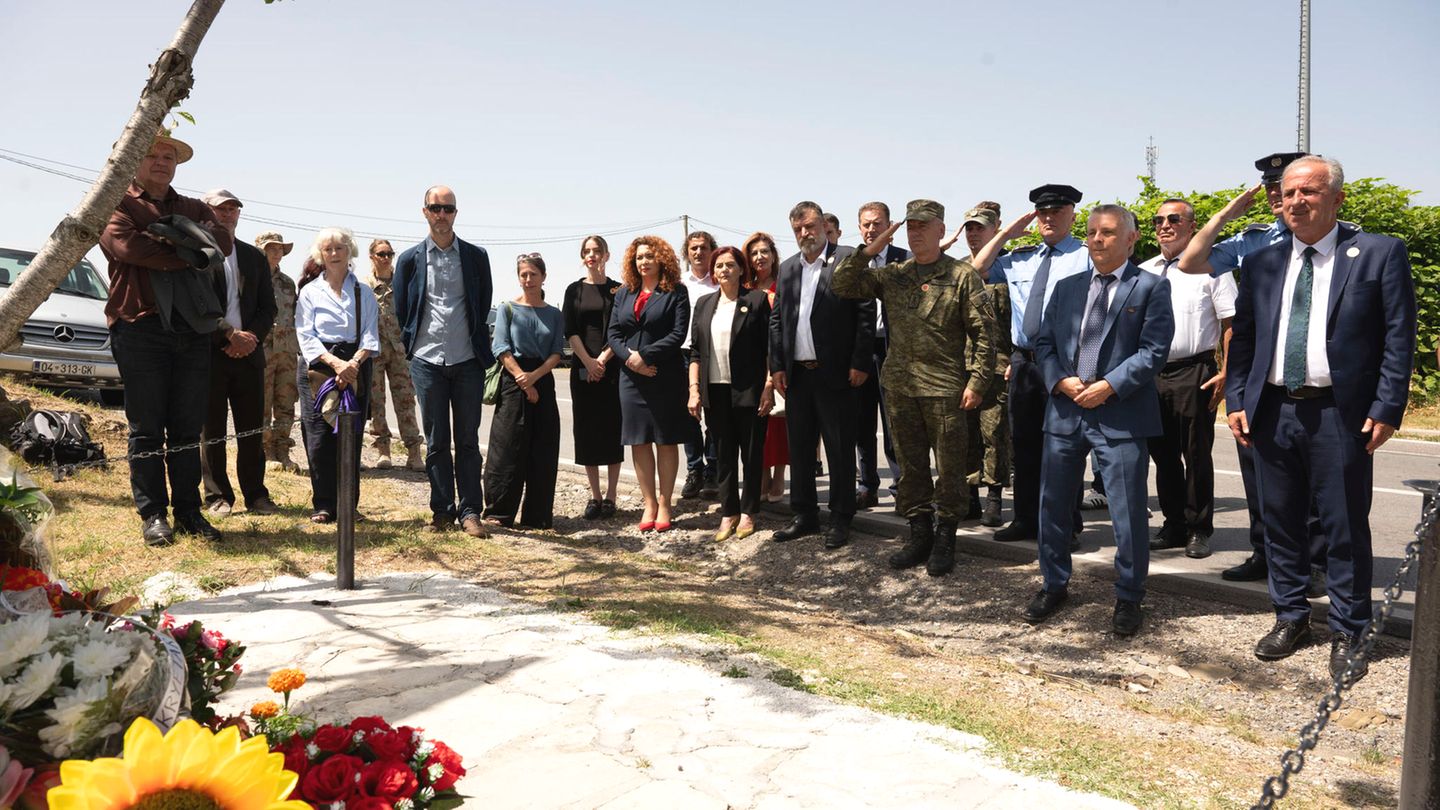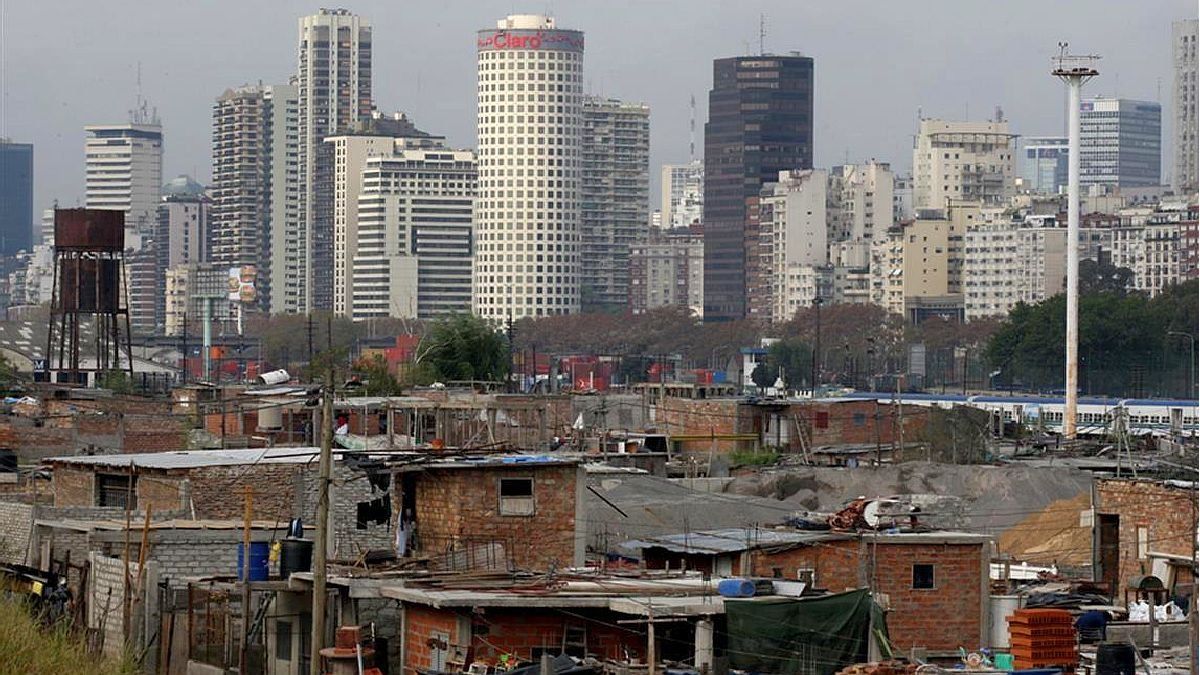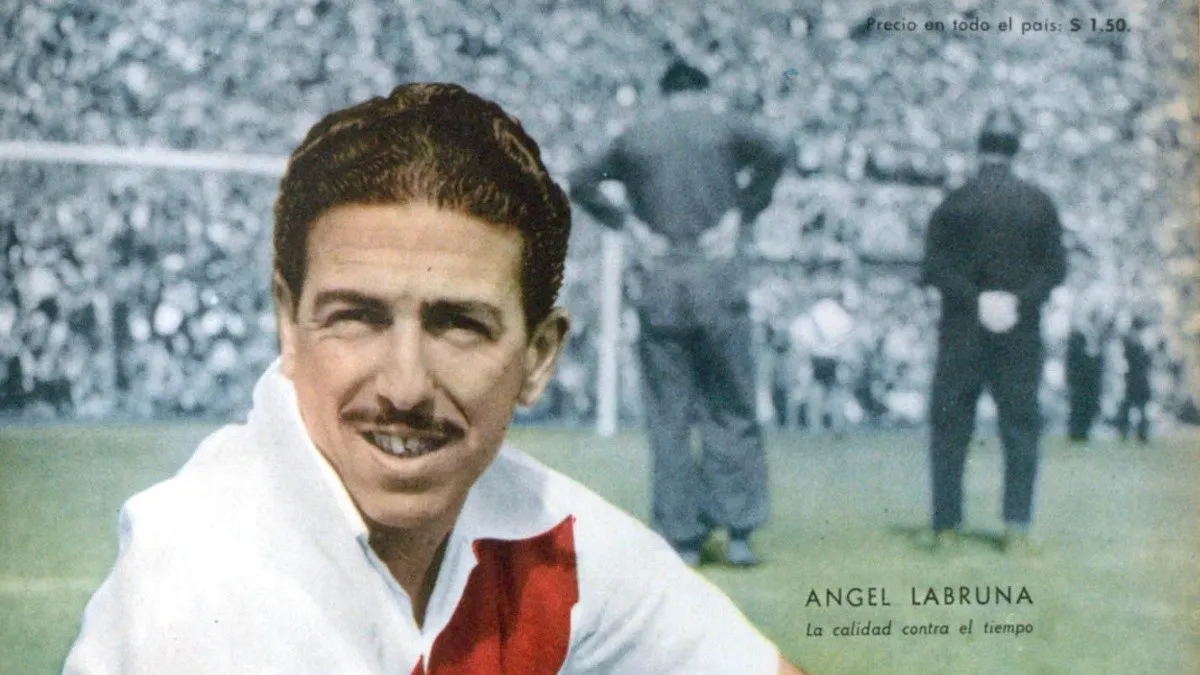On 13 June 1999, the star-Reporter Gabriel Grüner, Volker Krämer and their translator Senol Alit were murdered in Kosovo. At the ceremony on site it becomes clear: Their fate is not only felt by their relatives and in the editorial office of the star after – but also on site.
The commemoration is on a new foundation. Here at the Dulje Pass in Kosovo, where on this Thursday 25 years ago, on 13 June 1999, the two star-Reporters Gabriel Grüner and Volker Krämer were murdered together with their translator Senol Alit, there is hardly anything left to remind us of the brutal act of that time.
Trucks thunder past; today’s Kosovo, with its freshly paved roads and quickly erected new buildings, has little in common with the war-torn region of yesteryear.
But the memorial stone reminds us of this and will continue to do so. Together with the German Embassy in Pristina, the star renovate the memorial, including the quote from Bert Brecht:
The Rain
Does not return to top
If the wound
nNo more pain
Does the scar hurt
A new foundation for the memorial stone. And in a figurative sense: a new foundation for commemoration.
A friendship has grown out of the tragic event
25 years after the crime, together with the star the relatives of the murdered in Kosovo: Wolfgang and Peter Grüner, the two brothers of Gabriel Grüner, Jo Krämer, the widow of Volker Krämer and Lucy, his daughter. They laid flowers, words of comfort and above all of recognition were spoken, and once again it became clear that something positive has grown out of the tragic event: a deep bond between relatives and friends and the people of the region.
The tragic event: It was the first day of peace after the war in Kosovo. The Serbian troops were withdrawing, including over the Dulje Pass in the south of the country. Gabriel Grüner, Volker Krämer and Senol Alit drove up the pass in their car, but at the top a retreating Serbian convoy was holding up the traffic.
A Russian mercenary had also wrecked his own car there before. He approached Alit’s car, there was a verbal argument, then the mercenary shot into the car with his Kalashnikov, out of hatred, frustration, or perhaps simply so he could drive away in their car.
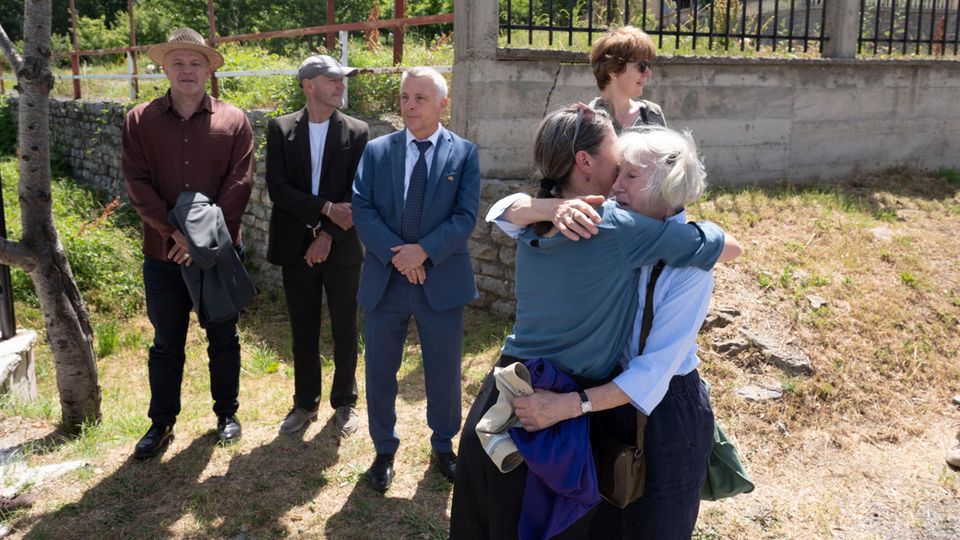
Krämer and Alit died at the scene of the accident, Grüner a few hours later in a British military hospital. For many months, a starteam investigated the crime. The Higher Regional Court of Hamburg then issued an arrest warrant for the suspected murderer from Russia – but the judiciary there refused to cooperate. No conviction was ever made.
All of this was brought to mind once again on the spot that day. The German ambassador, Jörn Rohde, had travelled from Pristina. “The scars left by their deaths remain to this day and beyond,” said Rohde of the murdered. “Remembrance is also a task for us in the here and now and for the future: violence must always be prevented.”
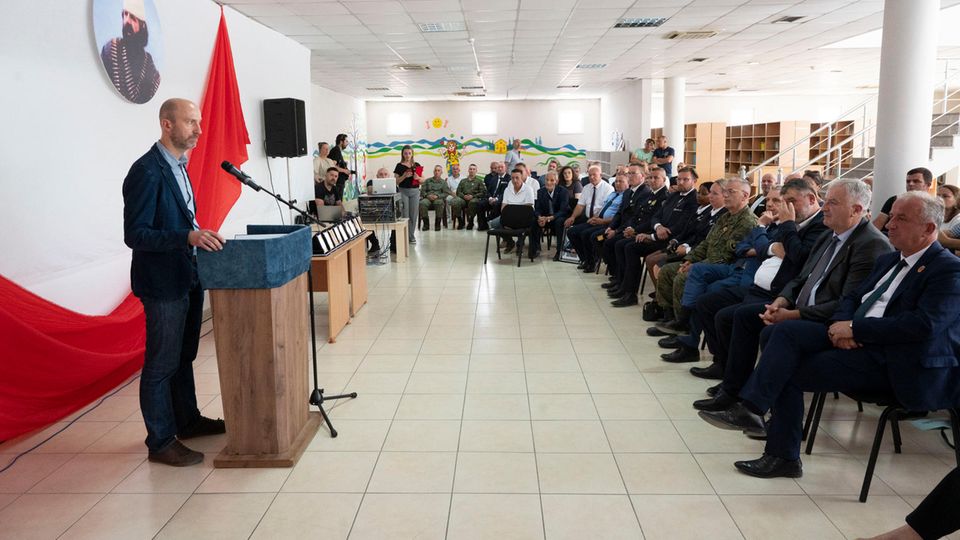
At the ceremony in the nearest town, Suha Reka, it became clear that day: this commemoration goes beyond the relatives – the people of Suha Reka still feel for the loss today, several hundred came to the town’s library. A partnership has existed for many years between Suha Reka and the Baden-Württemberg town of Fellbach. Gabriel Grüner’s friend and colleague Uli Reinhardt is there every year for the commemoration – his commitment is also based on the close ties between the region, the star and the relatives.
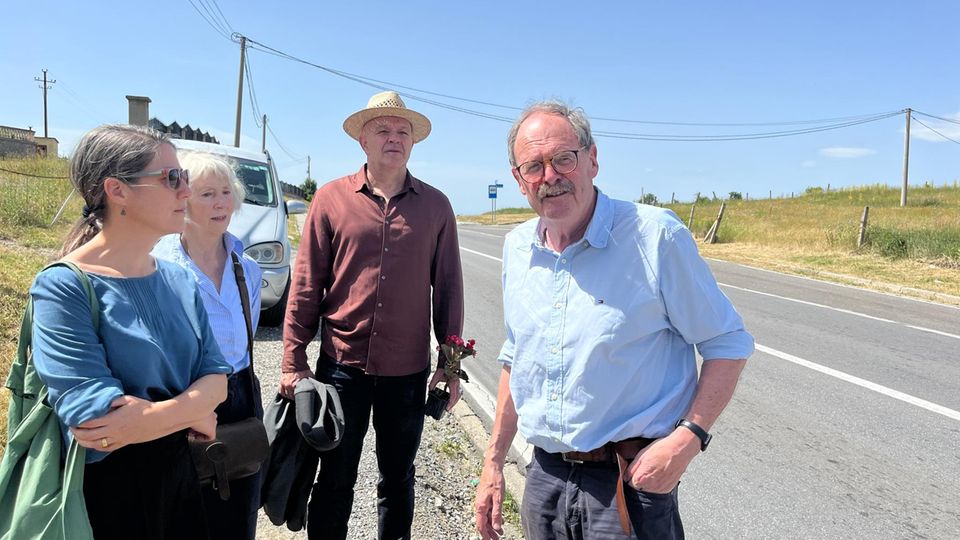
“For me, they are heroes of Kosovo,” says Mayor Bali Muharremaj. For him, their willingness to bear witness and to report is equivalent to the sacrifice of those who fought.
Who were the three who died here?
There is Gabriel Grüner, the reporter. Beatrix Gerstberger, his girlfriend, who was six months pregnant when he died, wrote a few years ago that Grüner, who repeatedly went to war as a reporter, never wanted to be called a war reporter.
Gabriel Grüner did not want reporter fame
He said it wasn’t about writing, but about the people he was writing about. And it affected him deeply. He said: “You come in as a reporter, write a report, and get kicked out again, which the people you’re reporting about can’t do. Here the world goes on as normal, and that’s when I realized how cynical and absurd this world is.”
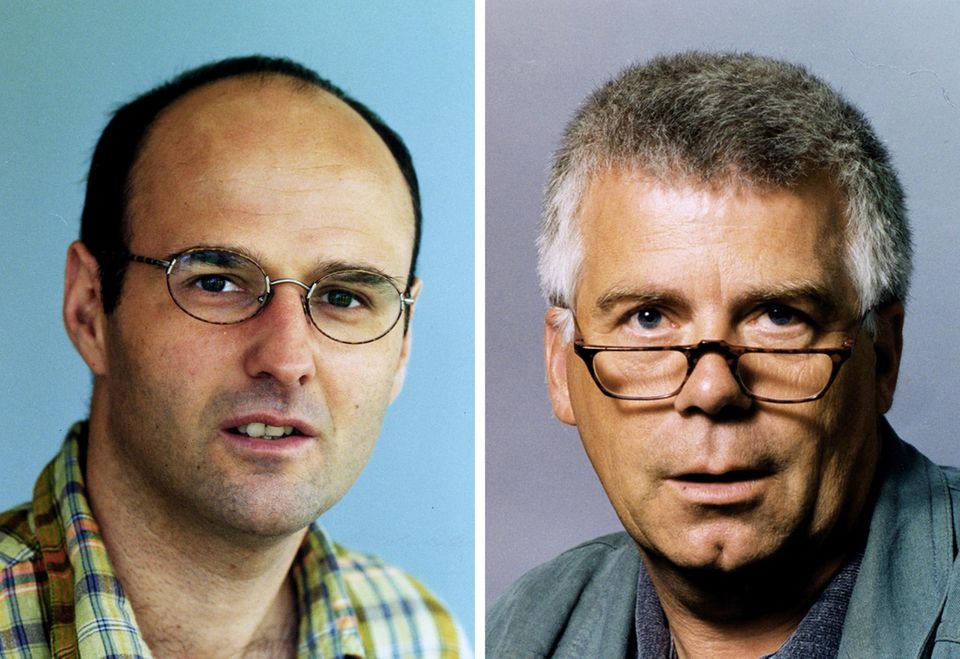
There is Volker Krämer, the photographer. He was 56 when he died, he had already worked for 30 years as a photographer for the star He became famous for his pictures from the end of the Prague Spring in 1968. One of his most touching photos shows young Czechs climbing onto a truck, you can see flags, one has blood on his cheek. But above all you can see the determination and joy in their faces, all the hope that is soon dashed.
“He was a small, lively man with wide-awake eyes,” says starReporter Joachim Rienhardt, who knew him, “with a lot of humor and despite decades of professional experience, not a swashbuckler, but a sensitive person full of reporter curiosity and compassion for the people he reported on.”
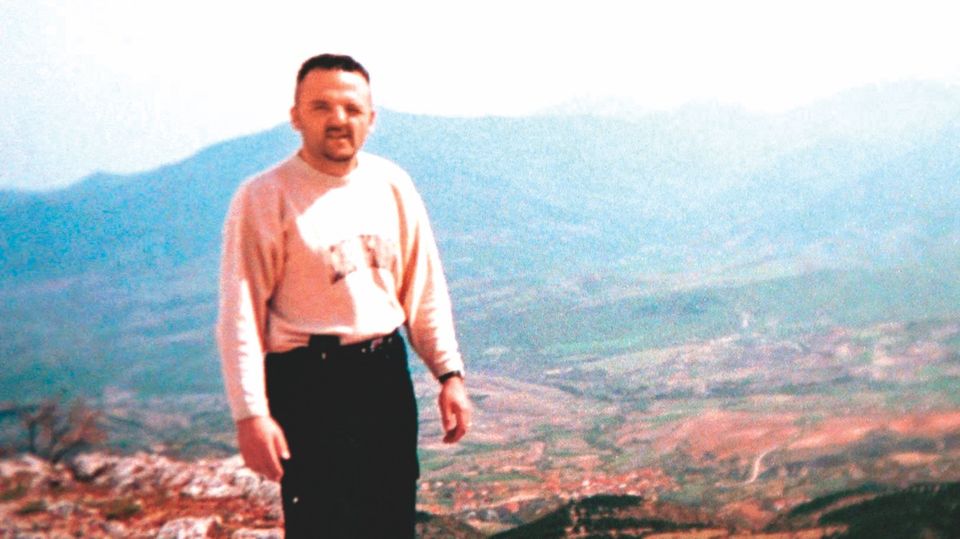
And there is Senol Alit, their translator. He was only 26 when he died. The three of them were travelling in his car. They searched for Senol Alit’s body for a whole day. It was finally found near the crime scene, on the saddle of the Dulje Pass, on an embankment.
“Overwhelming intensity of remembrance”
Jo Krämer, Volker Krämer’s widow, is now 77. She has been to Kosovo several times to commemorate the event – but each time, she says, she feels something special here, the “overwhelming seriousness and intensity of the commemoration. It touches me that people here still think of the reporters from far away who they didn’t know. It makes you feel very small.”
Source: Stern
I have been working in the news industry for over 6 years, first as a reporter and now as an editor. I have covered politics extensively, and my work has appeared in major newspapers and online news outlets around the world. In addition to my writing, I also contribute regularly to 24 Hours World.

